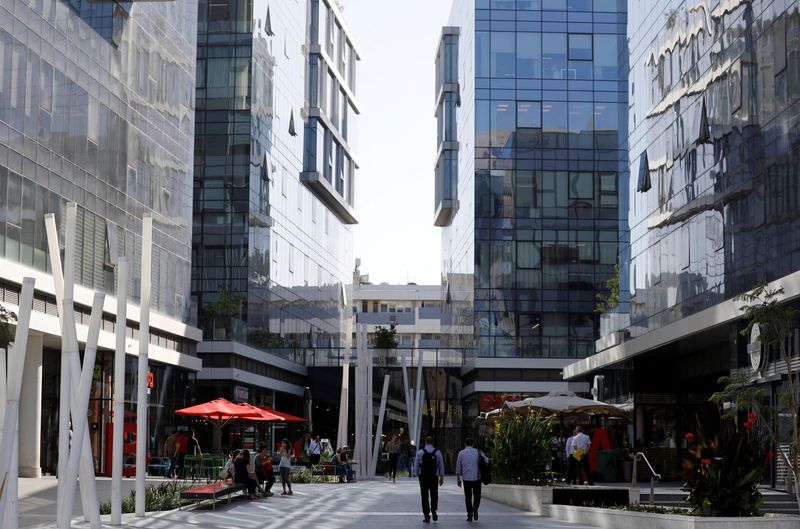By Steven Scheer
JERUSALEM (Reuters) - Israel's tech sector has remained resilient during a year-long war with Palestinian Islamist group Hamas but as it relies on large companies and foreign investment, the sector faces funding uncertainty that could harm the broader economy, a government report showed on Monday.
Since the war began on Oct. 7, Israeli tech firms raised some $9 billion - third behind Silicon Valley and New York, according to the state-funded Israel Innovation Authority (IIA).
"The level of investment was pretty much the same as the same period before the war," Dror Bin, CEO of the IIA, told Reuters. "So despite the fact that risk went up for investments in Israel, they still see the potential of those startups, and they continue to invest in them."
High-tech drives Israel's economy and accounts for 16% of employment, more than half of Israel's exports, a third of income taxes and 20% of its overall economic output.
Bin expressed concerns that employment in the sector has remained stagnant, which could curb income tax when the state needs funds to finance the war.
At the same time, most investment is in mature startups and cybersecurity firms, while other areas are suffering. "We are looking at something that might evolve to be a problem," said Bin, adding that many good companies that should be funded are currently having trouble.
To that end the IIA has a number of programmes to help smaller startups stay afloat.
The war, Bin said, looks to create a "baby boom" of new defence tech startups once it ends.
"The fundamentals of the tech sector are the same as before the war," he said. "Once this war ends, we will see a bounce back."

The IIA report follows one from earlier in September from the nonprofit Startup Nation Central (SNC), which said the larger tech firms continued to thrive but warned of the sector's sustainability due to the prolonged conflict and the current Israeli government's economic policy "which is widely perceived as destructive".
Israeli media this week reported that the 2025 budget would scale back on tax incentives for foreign investors in tech.